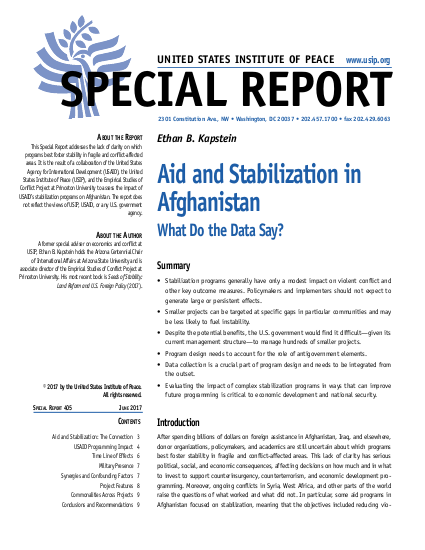
The question for international assistance efforts in fragile and conflict-affected countries is the extent to which aid programs are associated with changes in key metrics, including security, popular support for the government, community cohesion and resilience, population health, economic well-being, and internal violence. With an eye to lessons learned for the future, this report examines USAID stabilization programming in Afghanistan, focusing on whether it reduced violence, increased support for the government, and promoted other desirable political and economic outcomes.
This Special Report addresses the lack of clarity on which programs best foster stability in fragile and conflict-affected areas. It is the result of a collaboration of the United States Agency for International Development (USAID), the United States Institute of Peace (USIP), and the Empirical Studies of Conflict Project at Princeton University to assess the impact of USAID’s stabilization programs on Afghanistan. The report does not reflect the views of USIP, USAID, or any U.S. government agency.
